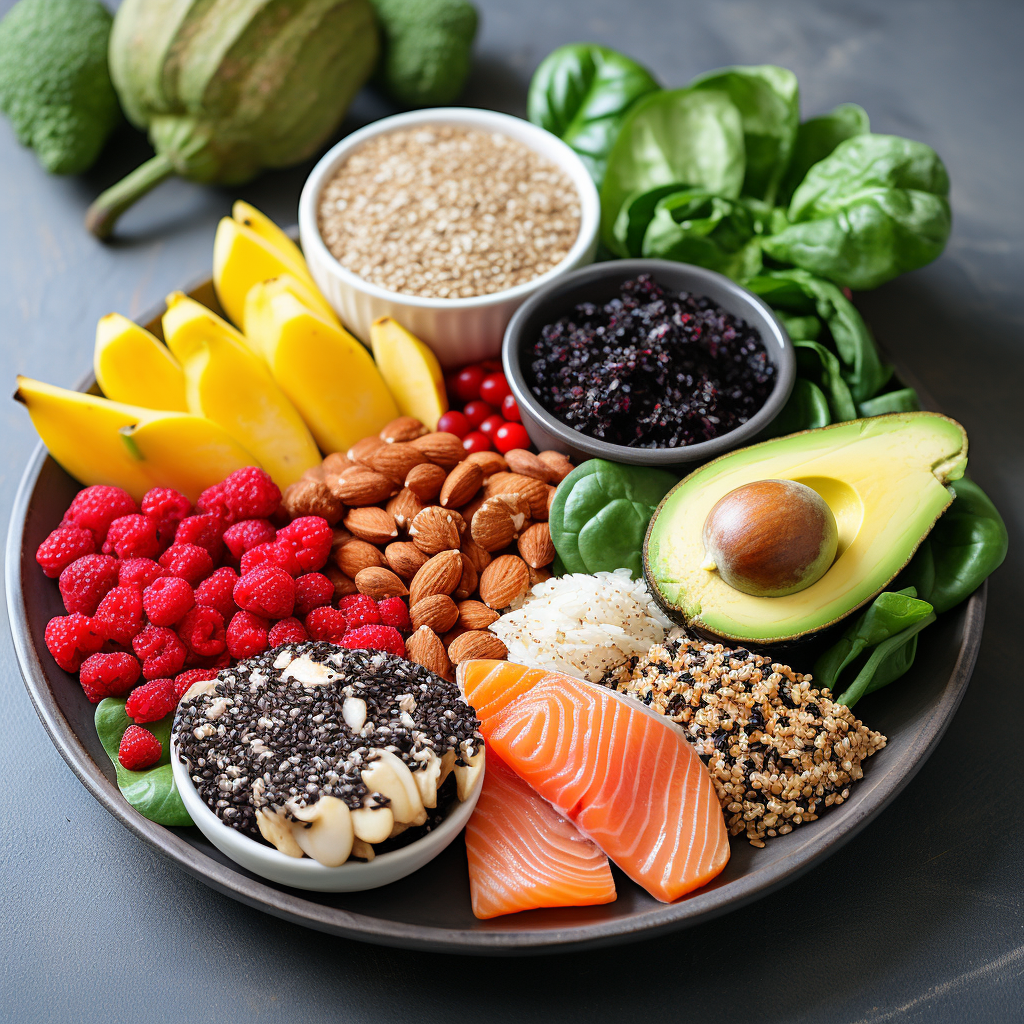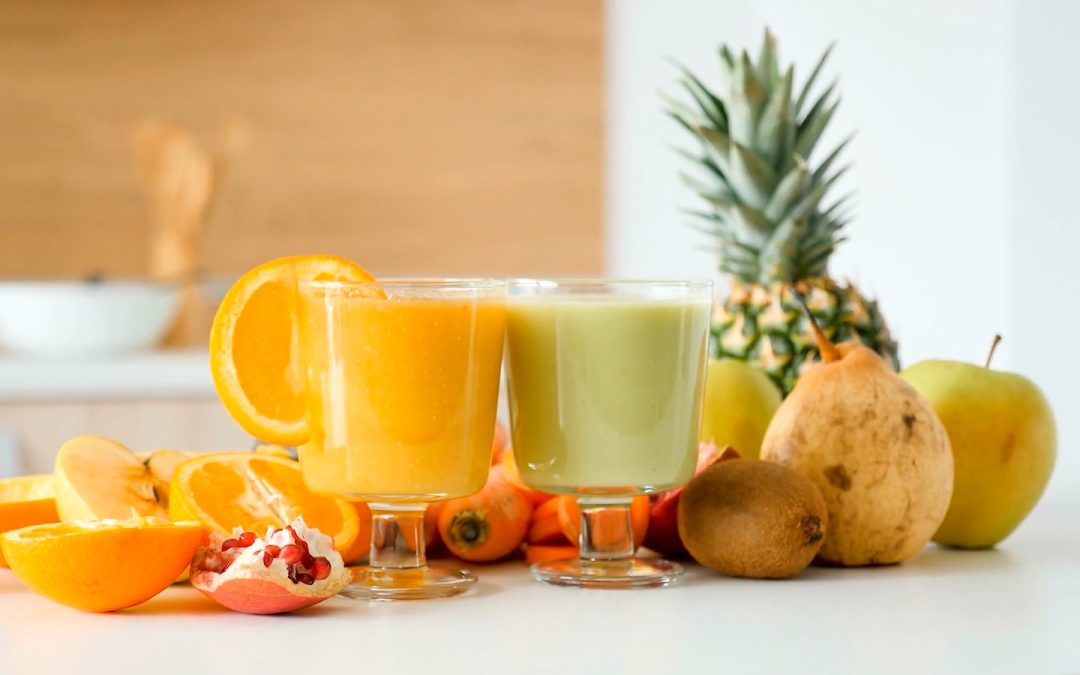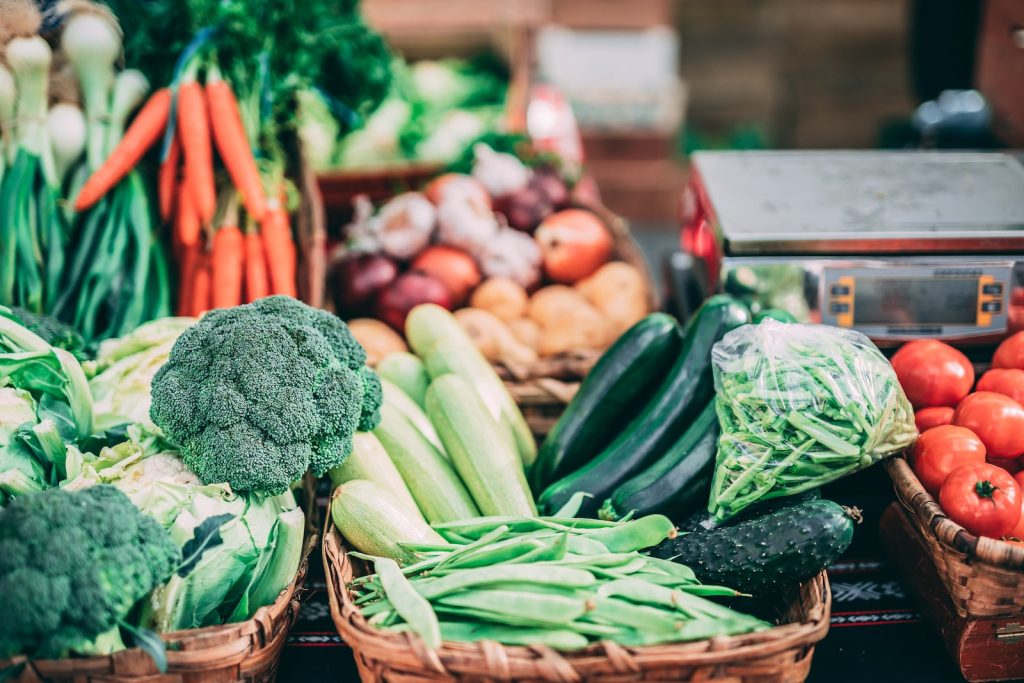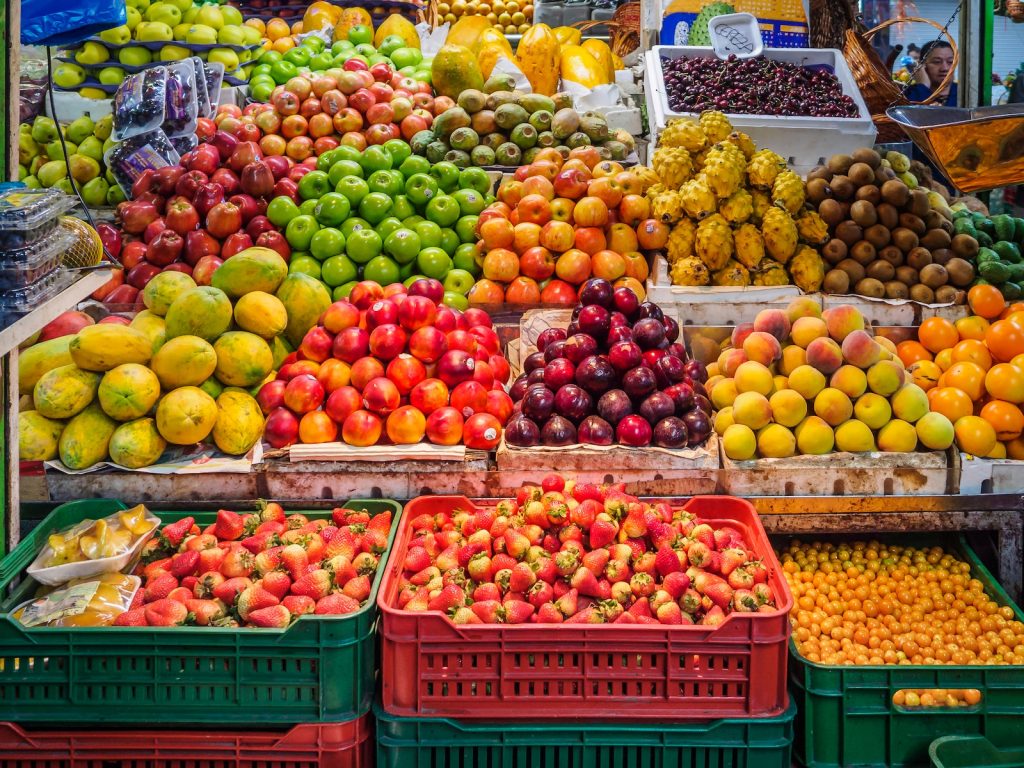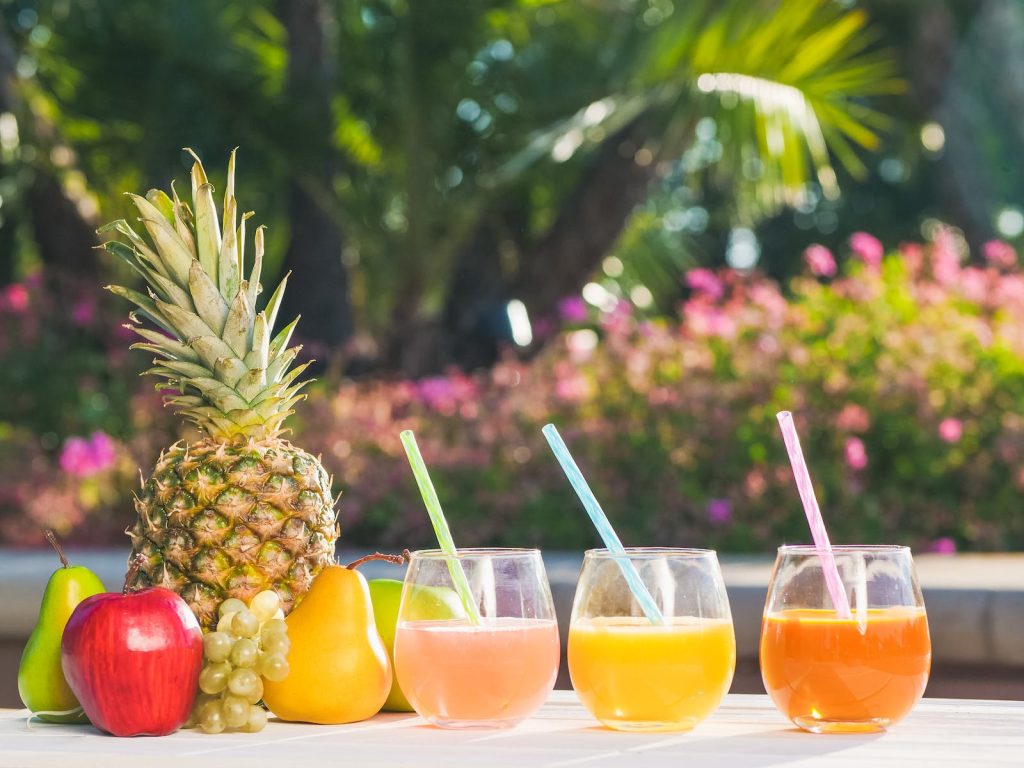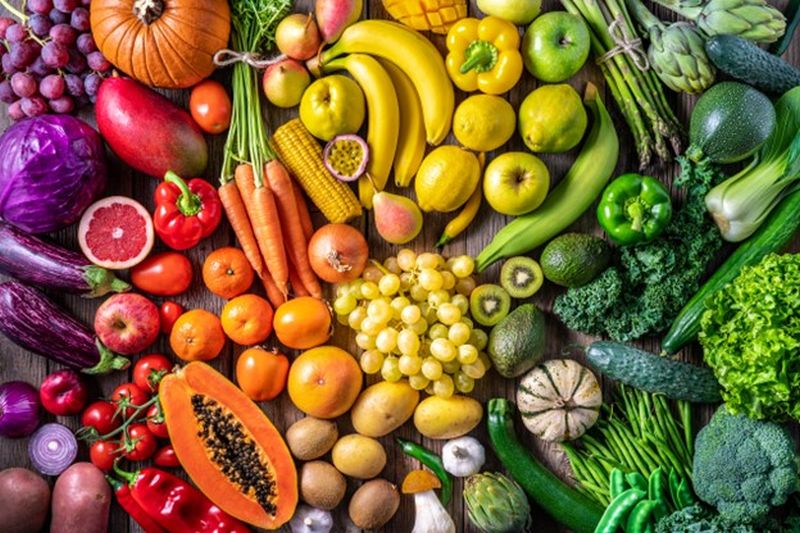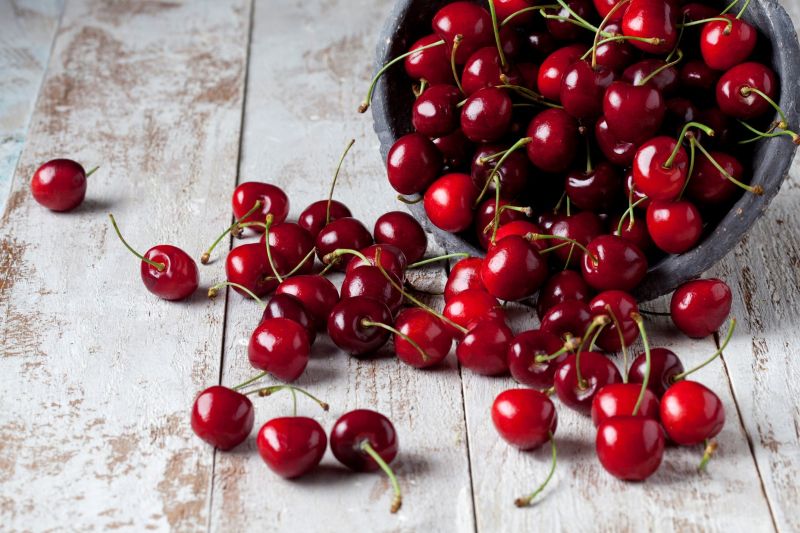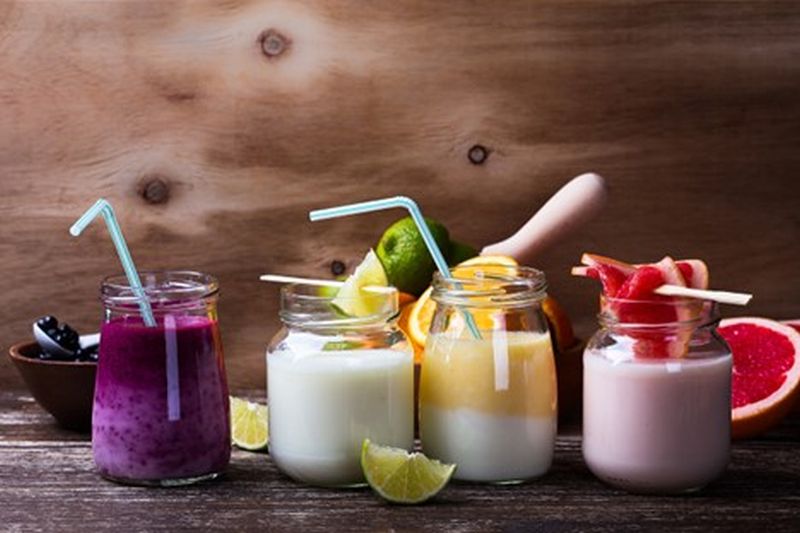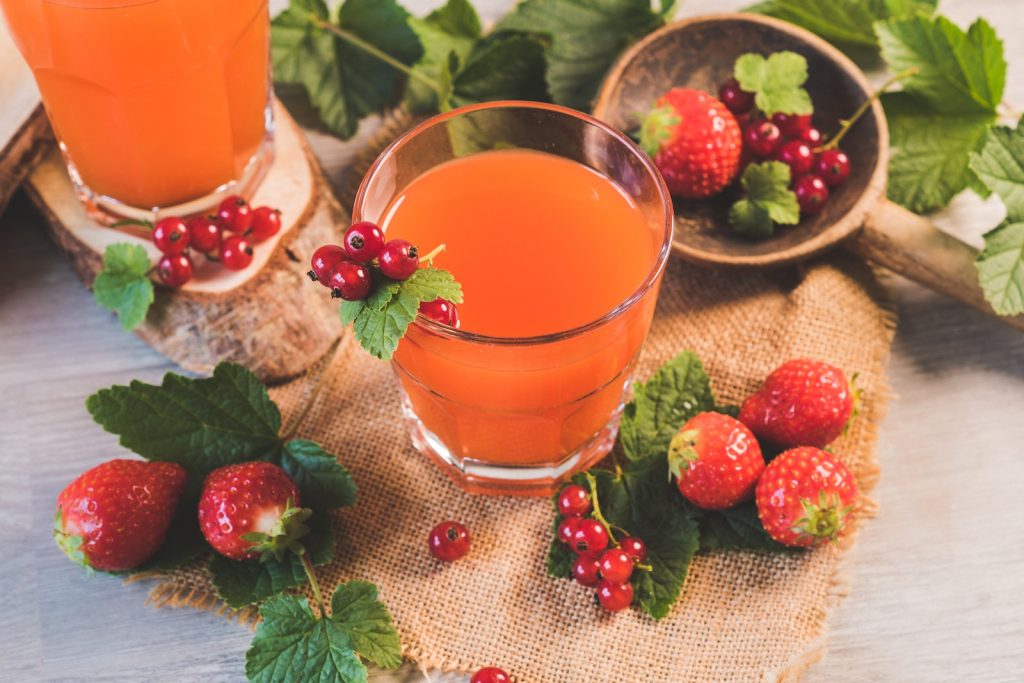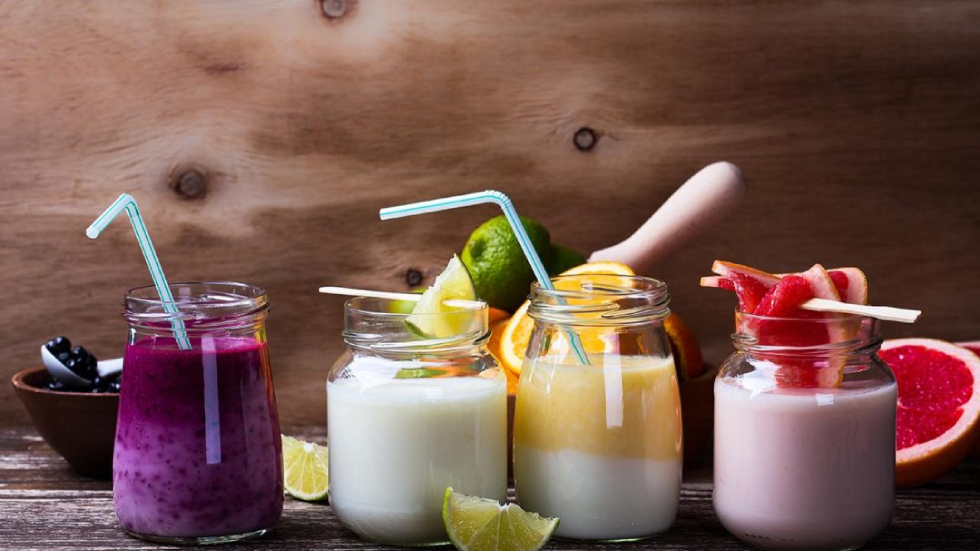
by Elizabeth Redd | Feb 14, 2024 | Health, Healthy Recipes, Nutrition
Welcome to a journey of discovery into the nutritional bounty of bananas. These tropical treasures are not only delicious but are also packed with a variety of essential nutrients that can significantly contribute to your overall health. As we peel back the layers, you’ll be amazed to learn what nutrients a banana has inside its vibrant yellow jacket.
Bananas are known worldwide for their convenience as a snack and their natural sweetness that satisfies any palate. But beyond their taste, bananas offer a wealth of health benefits, thanks to their dense nutritional profile. From providing a quick energy boost to supporting heart health, the humble banana is a powerhouse of vitamins and minerals.
Ready to kickstart your wellness journey? Sign up for our content to receive exclusive tips and updates. Take the first step towards a healthier, happier you! Join Our Community Today.!
As we delve deeper into the world of bananas, we will explore the specific nutrients that make bananas an excellent choice for anyone looking to improve their diet. With each section, you’ll gain insights into how these nutrients function and the potential health benefits they offer. So, let’s embark on this enlightening path together, uncovering the secrets held within one of the world’s most beloved fruits.
Vitamins in Bananas: Your Daily Health Boosters

Bananas are not just a tasty addition to your diet; they are also a significant source of several vital vitamins that play a crucial role in maintaining good health. Understanding the spectrum of vitamins in bananas can help you appreciate how this fruit acts as your daily health booster.
First and foremost, bananas are an excellent source of vitamin C, an antioxidant that is essential for the growth and repair of all body tissues. It helps to heal cuts and wounds, and it is important for the maintenance of healthy skin and bones. Next, bananas provide a good dose of vitamin B6, which is involved in brain development and function, and helps the body convert food into energy.
Bananas also contain vitamin A, essential for vision and immune function, and vitamin B2 (riboflavin), which is important for energy production and cellular function. Additionally, bananas have moderate amounts of niacin (vitamin B3), which plays a role in DNA repair and metabolic processes, and folate (vitamin B9), crucial for the formation of red blood cells and for pregnant women to help prevent congenital disabilities.
By incorporating bananas into your daily diet, you harness these vitamins to support various bodily functions, ranging from energy metabolism to immune system defense. In the upcoming sections, we will further explore the minerals found in bananas and how they complement the vitamins to enhance your health and vitality.
Minerals in Bananas: Essential for Body Function
Alongside their vitamin counterparts, bananas are a treasure trove of essential minerals that are pivotal for the body’s optimal functioning. Each banana comes packed with minerals that fortify your body’s structural integrity and biochemical processes.
One of the most prominent minerals found in bananas is potassium, an electrolyte that helps regulate heart function, fluid balance, and nerve signals. A single medium banana can provide approximately 422 milligrams of potassium, which is about 9% of the recommended daily intake. This makes bananas an excellent food choice for blood pressure control and cardiovascular health.
Additionally, bananas contain a notable amount of magnesium, a mineral that supports muscle and nerve function, blood sugar levels, and blood pressure regulation. Magnesium also plays a vital role in DNA synthesis and energy production. Moreover, bananas supply a modest amount of manganese, which is necessary for enzyme function, bone development, wound healing, and the metabolism of amino acids, carbohydrates, and cholesterol.
Other minerals in bananas include calcium, key for bone health and nerve signaling, and iron, which is essential for the formation of hemoglobin in red blood cells, transporting oxygen throughout the body. Trace minerals such as zinc, selenium, and copper, although present in smaller amounts, contribute to immune function, antioxidant activity, and overall health maintenance.
With a balanced mix of these minerals, bananas not only support day-to-day physiological activities but also aid in the long-term preservation of health. The following sections will delve into the health benefits provided by these nutrients and how they can be a part of a holistic approach to wellness.
Bananas and Dietary Fiber: A Gut Health Ally

Fiber plays a crucial role in digestive health, and bananas are a delightful source of this dietary necessity. The average banana contains about 3 grams of fiber, making it a substantial contributor to the recommended daily intake. Specifically, bananas contain two types of fiber: soluble and insoluble. Each type offers its own unique health benefits and contributes to our well-being.
Soluble fiber, which dissolves in water to form a gel-like substance, can aid in lowering blood cholesterol and glucose levels. It’s known for its ability to help regulate the body’s use of sugars, helping to keep hunger and blood sugar in check. Insoluble fiber, on the other hand, adds bulk to stool and can help food pass more quickly through the stomach and intestines, reducing the risk of constipation.
Bananas also contain resistant starch, a type of indigestible carbohydrate that functions like soluble fiber. Green, unripe bananas are particularly high in this starch. As bananas ripen, the resistant starch transforms into simple sugars, which are easier to digest. This starch is not absorbed by the body; instead, it reaches the large intestine where it becomes food for beneficial bacteria in the gut, promoting gut health and aiding in metabolic health.
By incorporating bananas into your diet, you can support your digestive system, contribute to satiety, and potentially lower your risk of developing gastrointestinal issues. As we continue to explore the multifaceted benefits of bananas, it becomes clear how this fruit can be a valuable component in a diet aimed at achieving a harmonious balance for holistic health and healing.
The Power of Potassium in Bananas

Potassium is a vital mineral and electrolyte that plays a pivotal role in many bodily functions, and bananas are famously rich in this nutrient. A medium-sized banana typically contains about 422 milligrams of potassium, which is approximately 9% of the recommended daily intake. This makes bananas an excellent, convenient source of this essential nutrient.
The benefits of potassium extend to various aspects of health. It is critical for maintaining proper heart function and plays a key role in muscle contraction, making it important for normal digestive and muscular function. Potassium also assists in maintaining a stable balance of fluids in the body and helps regulate nerve signals and blood pressure.
Consuming adequate potassium can be particularly beneficial for cardiovascular health. It is associated with lowered blood pressure in people who are susceptible to hypertension and may reduce the risk of stroke. Moreover, a diet rich in potassium can help counterbalance some of the harmful effects of sodium on blood pressure.
For athletes or those engaged in rigorous physical activities, bananas can be a quick source of energy and potassium, which may help prevent muscle cramps and speed up recovery. For the everyday person, including bananas in the diet can contribute to overall well-being and help prevent potassium deficiency, which is characterized by fatigue, weakness, and muscle cramps.
Incorporating bananas into a balanced diet not only provides the body with this power-packed mineral but also supports the intricate network of processes that keep us functioning at our best. As we delve into the nutritional profile of bananas, the significance of potassium shines through as a cornerstone of optimal health.
Incorporating Bananas into Your Diet for Maximum Benefits

Embracing bananas in your daily diet can be both delicious and health-promoting. Their versatility allows them to be effortlessly integrated into meals throughout the day. For a nutritious start, add sliced bananas to your morning cereal or oatmeal. They naturally sweeten your breakfast while providing a boost of energy and nutrients. Smoothies are another splendid way to enjoy bananas; blend them with other fruits, some greens, and a protein source for a balanced drink.
For a midday snack, bananas can be eaten alone or paired with nut butter for an added dose of healthy fats and proteins. When it comes to desserts, bananas can be the main ingredient in healthier options like banana bread or frozen banana ice cream, which offer sweetness without an overload of added sugars.
Not to be overlooked, bananas can also play a role in savory dishes. Their subtle sweetness can complement the flavors in curries, and they can be used as a natural thickening agent in soups and stews. Even the peels, often discarded, can be utilized in recipes as a commitment to zero-waste cooking, offering both nutrients and fiber.
The key to reaping the maximum benefits from bananas is to consume them when they’re ripe, as this is when they have the highest concentration of antioxidants. Remember to keep your diet varied to ensure you’re getting a wide range of nutrients from different sources.
Ready to kickstart your wellness journey? Sign up for our content to receive exclusive tips and updates. Take the first step towards a healthier, happier you! Join Our Community Today.

by Elizabeth Redd | Feb 14, 2024 | Health, Healthy Recipes, Nutrition
Embarking on a journey towards health and well-being often starts with understanding the nutrition facts banana lovers cherish. Bananas are not only a convenient snack but also a nutritional powerhouse that can play a significant role in a balanced diet. Rich in essential vitamins and minerals, they are an excellent source of vitamin C, vitamin B6, and potassium – an electrolyte that helps maintain fluid balance and nerve and muscle function.
Furthermore, bananas are known for their dietary fiber content, which aids in digestion and provides a sense of fullness, helping with weight management. They also contain antioxidants and phytonutrients, which can combat oxidative stress and inflammation in the body. With a moderate glycemic index, they offer a steady release of energy, making them a suitable option for those monitoring their blood sugar levels.
Whether you’re an athlete looking for a quick energy boost or someone interested in maintaining a healthy lifestyle, incorporating bananas into your diet can be beneficial. Ready to kickstart your wellness journey? Sign up for our content to receive exclusive tips and updates. Take the first step towards a healthier, happier you! Join Our Community Today!
Caloric Content and Macronutrients in Bananas

When delving into the nutrition facts banana enthusiasts should be aware of, it’s crucial to consider their caloric and macronutrient profiles. A medium-sized banana typically contains about 105 calories, making it a modest addition to any diet. The bulk of a banana’s calories come from carbohydrates, with approximately 27 grams per banana. These carbohydrates are mostly in the form of natural sugars and dietary fiber, which contribute to the fruit’s energy-boosting properties.
While bananas are not a significant source of protein, providing about 1 gram per serving, they do offer a small amount of healthy fats. These macronutrients work together to provide a balanced energy source. The presence of dietary fiber, particularly resistant starch in greener bananas, also aids in slowing digestion and can help stabilize blood sugar levels after meals.
Understanding these nutritional components is essential for those looking to manage their caloric intake or balance their macronutrient distribution for various health goals. Whether you’re incorporating bananas into a pre-workout snack or as part of a fiber-rich breakfast, they can be a nutritious option that supports a well-rounded diet.
Vitamins and Minerals: The Hidden Wealth of Bananas

Bananas are a veritable treasure trove of essential vitamins and minerals, contributing to their status as a powerhouse in the fruit kingdom. Potassium is perhaps the most well-known mineral in bananas, with a medium-sized banana providing around 422 milligrams or about 9% of the recommended daily value. This vital mineral is key for maintaining proper heart function and regulating blood pressure.
In addition to potassium, bananas are rich in Vitamin C, an antioxidant that supports immune health and skin integrity, providing about 10% of the daily value. They also contain significant levels of Vitamin B6, which is crucial for brain health and metabolism, with a contribution of about 20% of the daily value. Manganese, essential for bone health and metabolic function, is also found in notable amounts in bananas.
Other micronutrients found in bananas include magnesium, which aids in muscle relaxation and nerve function, calcium for bone health, and iron which is necessary for red blood cell formation. The presence of these nutrients highlights bananas as not only a convenient snack but also a multi-faceted addition to any diet aimed at achieving optimal Health and wellness.
Bananas and Digestive Health: A Closer Look

When it comes to supporting digestive health, bananas play a significant role. They are a natural source of dietary fiber, with a single medium-sized banana containing about 3 grams, which is approximately 10% of the daily fiber needs for adults. Dietary fiber is essential for maintaining regular bowel movements and preventing constipation. It also helps to keep the digestive system clean by aiding in the elimination of toxins and supporting overall gut health.
Bananas boast a type of fiber known as pectin, which varies in content depending on the ripeness of the fruit. Pectin has been noted to aid in digestion and can have a prebiotic effect. Prebiotics serve as food for the beneficial bacteria in the gut, promoting a healthy microbiome balance. This is crucial for not just digestion but also for the immune system, as a significant portion of the body’s immune response is managed in the gut.
In addition to fiber, bananas contain resistant starch in their unripe form. This type of starch acts similarly to fiber; it resists digestion in the small intestine and ferments in the large intestine, serving as another source of food for healthy gut bacteria. Resistant starch has been associated with several health benefits, including improved insulin sensitivity and lower blood sugar levels post-meals.
The combination of fiber, pectin, and resistant starch in bananas makes them an excellent food for promoting digestive health. Integrating bananas into one’s diet can help smooth the digestive process, contribute to a healthy gut microbiome, and may even play a role in preventing gastrointestinal issues.
Banana Benefits: Enhancing Your Diet and Lifestyle

Bananas are more than just a convenient snack; they are packed with nutrients that can significantly enhance your diet and lifestyle. These tropical fruits are an excellent source of essential vitamins and minerals, including vitamin C, vitamin B6, potassium, and manganese. Vitamin B6 plays a pivotal role in cognitive development and immune function, while vitamin C is an antioxidant that helps repair body tissue and enhances iron absorption.
One of the primary nutrition facts banana enthusiasts appreciate is the high potassium content, which is vital for maintaining proper heart function and balanced blood pressure. The American Heart Association recommends bananas as a part of a heart-healthy diet because potassium helps to offset the negative effects of sodium and eases tension in the blood vessel walls.
Moreover, bananas can be a great dietary addition for those looking to manage their energy levels. The natural sugars – glucose, fructose, and sucrose – paired with fiber provide a sustained energy release. This makes bananas an ideal pre-workout snack or a midday pick-me-up that won’t lead to a sugar crash.
Not to overlook, bananas are incredibly versatile in the kitchen. They can be used in smoothies, baked goods, and even savory dishes, making it easy to incorporate them into meals. Their natural sweetness also makes them a healthier substitute for added sugars in recipes, contributing to a reduced intake of refined sugars and improved overall diet quality.
Embracing bananas in your daily diet can offer a multitude of benefits, from bolstering heart health to providing a quick energy boost. As a whole food, bananas can help satisfy sweet cravings in a nutritious way, support athletic performance, and contribute to a more balanced and rejuvenating lifestyle.
Myths and Truths: Understanding Banana Nutrition Facts
When it comes to banana nutrition facts, it’s essential to differentiate between myths and truths to fully understand the benefits of this fruit. A common misconception is that bananas are too high in sugar and can be fattening. However, bananas contain natural sugars, which are accompanied by fiber, slowing down the digestion process and avoiding spikes in blood sugar levels.
Another myth is that bananas are not as nutritious when they become spotted or brown. In fact, the ripening process increases the levels of antioxidants, making them even more beneficial. Brown bananas also have a higher content of easily digestible sugars, making them a quick source of energy.
It’s also falsely believed that bananas are not suitable for diabetics due to their sweetness. While it’s true that bananas have carbohydrates that impact blood sugar levels, they have a moderate glycemic index and can be included in a diabetic diet when portions are controlled and balanced with other low glycemic foods.
Bananas are indeed a powerhouse of nutrition, and understanding the truths behind the myths can help people enjoy this fruit without unwarranted guilt. As part of a balanced diet, bananas contribute to fullness, provide essential nutrients, and can even aid in weight management due to their fiber content.
Ready to kickstart your wellness journey? Sign up for our content to receive exclusive tips and updates. Take the first step towards a healthier, happier you! Join Our Community Today.

by Health And Healing AI | Nov 4, 2023 | Health, Healthy Recipes
Gut Health Overhaul: The Astonishing Impact of 10 Natural Juices
Transform Your Gut Health with These 10 Miracle Juices: Once upon a less enlightened time, my body felt like an adversary, each meal a dice rolls with fate, every nightfall ushering in a vigil of discomfort.
I was adrift in a sea of digestive woes, a silent scream echoing through the caverns of my beleaguered belly.
During these darkest hours, amidst the groans and gurgles of an unrested gut, I stumbled upon a treasure map—etched not in ancient parchment but in the wisdom of the earth’s flora.
Ten miracle juices lay at the map’s end, each a guardian of gut harmony, a beacon to guide the wayward traveler home.
My odyssey didn’t require scaling mountain peaks or delving into the ocean’s abyss.
It was crafted in my humble home amidst pots and pans, where blades met fruit and vegetables, and the alchemy of health was but a press away.
Through the clattering of the juicer, a symphony arose—a melodic promise as each ingredient shed its solid form and joined a river of rejuvenation.
Amber waves of apple, emerald spirals of kale, ruby jets of beetroot; they came together in a vibrant dance, a chorus in the cathedral of my kitchen.
It was not a solo expedition, but a voyage destined for shared cartography.
Through the pages of this article, I’ll charter the course I navigated to reach the shores of gut tranquility.
With each paragraph, you’ll edge closer to the serenity I now know. By the end of this narrative, the treasure won’t just be mine to cherish; it will be yours to claim.

Sipping to Gut Success: The Top 10 Juices You Need in Your Wellness Regime. Photo by Timur Weber
Get Your Digestive Tract on Track: Top 10 Juices for a Happy Belly
Transform Your Gut Health with These 10 Miracle Juices: Are you tired of feeling bloated and uncomfortable after every meal?
Do you suffer from digestive issues like constipation or irritable bowel syndrome?
If so, you’re not alone. Millions of people struggle with digestive problems every day, but there’s hope.
Juicing is a wonderful way to improve your gut health and get your digestive tract back on track.
Juices are packed with nutrients that can help support a healthy gut microbiome, improve digestion, and reduce inflammation in the intestinal tract.
Plus, they’re delicious and easy to make at home. In this article, we’ll share our top ten juice recipes for a happy belly.
Whether you’re looking to improve your digestion, boost your immune system, or just enjoy a tasty drink, we’ve got you covered.
So, grab your juicer, and let’s get started!
Understanding Your Digestive System
Your digestive system is a complex network of organs and tissues that work together to break down food into nutrients that your body can use.
The digestive tract, also known as the gastrointestinal (GI) tract, is the long tube that runs from your mouth to your anus.
It includes several organs, such as the esophagus, stomach, small intestine, and large intestine (colon).
The digestive process starts in your mouth, where enzymes in your saliva begin to break down carbohydrates.
From there, food travels down your esophagus and into your stomach, where it is mixed with stomach acid and digestive enzymes.
The stomach breaks down food further and releases it into the small intestine, where most of the nutrients are absorbed into your bloodstream.
Your digestive system is also home to trillions of bacteria, both good and bad.
The beneficial bacteria help to break down food and keep your digestive system healthy.
However, an imbalance of bacteria can lead to digestive problems and disorders, such as irritable bowel syndrome (IBS).
To keep your digestive system functioning properly, it’s important to eat a healthy diet that is rich in fiber and nutrients.
You can also take digestive enzymes to help break down food and ease digestive problems.
Additionally, regular exercise can help to improve digestion and keep your immune system healthy.
In summary, your digestive system is a vital part of your overall health. By understanding how it works and taking steps to keep it healthy, you can enjoy a happy belly and avoid digestive problems.
Importance of Hydration and Fiber

Reveal the wonder-working power of Fiber and simple juices that can transform your gut health. Photo by Iñigo De la Maza
When it comes to maintaining a healthy digestive system, hydration and fiber are two essential components.
Adequate hydration helps your body break down soluble fiber from your diet, which keeps your digestion process on track.
Drinking enough water also helps to prevent bloat and constipation, two common digestive issues that can cause discomfort and pain.
Fiber, on the other hand, helps to keep the digestive tract flowing by keeping your bowel movements soft and regular. There are two types of fiber: soluble and insoluble.
Soluble fiber dissolves in water and forms a gel-like substance in the digestive tract, which helps to slow down digestion and keeps you feeling fuller for longer.
Insoluble fiber, on the other hand, does not dissolve in water and adds bulk to your stool, which helps to keep things moving through your digestive system.
Foods that are high in fiber include fruits and vegetables, whole grains, oats, and bran.
It’s important to include a variety of these foods in your diet to ensure that you’re getting both soluble and insoluble fiber.
Women should aim to eat at least 21 to 25 grams of fiber per day, while men should aim for 30 to 38 grams per day.
If you’re not used to eating a high-fiber diet, it’s important to increase your intake gradually to avoid gas and bloating.
You can also try drinking more water to help your body adjust to the increased fiber intake.
If you’re still experiencing discomfort, you may want to talk to your doctor or a registered dietitian for advice on how to adjust your diet.
Overall, staying hydrated and eating a diet that’s rich in fiber is key to maintaining a healthy digestive system. By making small changes to your diet and lifestyle, you can help to prevent digestive issues like constipation, bloating, and gas, and keep your digestive tract on track.
The Power of Probiotics and Prebiotics

Juices That Work Wonders: The Secret Ingredients to Gut Healing Revealed. Photo by Alexander Schimmeck
Your digestive system is home to trillions of beneficial bacteria that help keep your gut healthy.
Probiotics are live microorganisms that can be found in certain foods or supplements.
These “good” bacteria can help maintain a healthy balance of microorganisms in your gut, which can improve digestion and boost your immune system.
Prebiotics are types of fiber that feed the beneficial bacteria in your gut.
They can be found in foods such as whole grains, bananas, greens, onions, garlic, soybeans, and artichokes. In addition, prebiotics are added to some foods and are available as dietary supplements.
Research is ongoing into the relationship of the gut microflora to disease.
Fermented foods are also a reliable source of probiotics. Yogurt, kefir, kimchi, miso, and kombucha are all examples of fermented foods that contain live cultures of beneficial bacteria.
Fermented foods also contain prebiotics, which can help feed the healthy bacteria in your gut.
It’s important to note that not all fermented foods contain live cultures of beneficial bacteria. When choosing fermented foods, look for products that contain “live and active cultures” on the label.
This ensures that the product contains live bacteria that can provide probiotic benefits.
Incorporating probiotics and prebiotics into your diet can have a positive impact on your gut health. Adding fermented foods to your diet is an effortless way to get more probiotics and prebiotics.
You can also take probiotic supplements, but it’s important to choose a high-quality product that contains strains of bacteria that have been shown to be effective.
Juicing for Digestive Health

Transformative Tastes: Explore the 10 Juices Crafted for Optimal Gut Harmony
Juicing is an excellent way to improve your digestive health. By consuming fresh fruits and vegetables in juice form, you can easily absorb essential nutrients that your body needs to function properly.
Here are some of the best fruits and vegetables to juice for optimal digestive health:
1. Pear Juice
Pears are high in fiber, which makes them an excellent choice for promoting healthy digestion. Pear juice can help regulate bowel movements and prevent constipation. It’s also rich in antioxidants, which can help reduce inflammation in the gut.
2. Apple Juice
Apples are another great source of fiber and can help improve digestion. Apple juice can help regulate blood sugar levels and reduce inflammation in the gut. It’s also rich in vitamins and minerals that are essential for overall health.
3. Pineapple Juice
Pineapple contains an enzyme called bromelain, which can help break down proteins in the gut. Pineapple juice can help reduce inflammation and improve digestion. It’s also rich in vitamin C, which can boost your immune system.
4. Cucumber Juice
Cucumbers are high in water content, which makes them an excellent choice for promoting hydration and healthy digestion. Cucumber juice can help reduce inflammation in the gut and promote regular bowel movements.
5. Celery Juice
Celery is another reliable source of fiber and can help improve digestion. Celery juice can help reduce inflammation in the gut and promote healthy bowel movements.
It’s also rich in vitamins and minerals that are essential for overall health.
6. Lemon Juice
Lemon juice can help stimulate the digestive system and promote healthy bowel movements. It’s also rich in vitamin C, which can boost your immune system. Lemon juice can be added to other juices or consumed on its own.
7. Kiwi Juice
Kiwi is high in fiber and can help promote healthy digestion. Kiwi juice can help regulate bowel movements and prevent constipation. It’s also rich in vitamin C, which can boost your immune system.
8. Papaya Juice
Papaya contains an enzyme called papain, which can help break down proteins in the gut. Papaya juice can help reduce inflammation and improve digestion. It’s also rich in vitamins and minerals that are essential for overall health.
9. Green Juice
Green juice is a combination of various vegetables, including kale, spinach, and cucumbers. Green juice can help promote healthy digestion and reduce inflammation in the gut. It’s also rich in vitamins and minerals that are essential for overall health.
10. Beet Juice
Beets are high in fiber and can help promote healthy digestion. Beet juice can help regulate bowel movements and prevent constipation.
It’s also rich in antioxidants, which can help reduce inflammation in the gut.
By incorporating these juices into your diet, you can improve your digestive health and promote overall wellness.
Remember to always use fresh, organic fruits and vegetables when juicing to ensure that you’re getting the most nutrients possible.
Incorporating Digestive Superfoods

Nature’s Digestive Aids: Uncover the Power of 10 Miracle Juices. Photo by Kindel Media
If you want to improve your digestive health, incorporating digestive superfoods into your diet is a suitable place to start.
These foods are packed with nutrients that can help to heal your gut and promote healthy digestion.
Here are some of the top digestive superfoods that you can easily incorporate into your diet:
- Ginger: Ginger is a natural anti-inflammatory that can help to soothe an upset stomach. It also contains compounds that can help to improve digestion and reduce bloating. Try adding fresh ginger to your morning smoothie or juicing it with other fruits and vegetables.
- Mint: Mint is another natural anti-inflammatory that can help to soothe digestive issues. It can also help to relieve gas and bloating. Try adding fresh mint to your water or tea or juicing it with other fruits and vegetables.
- Chia seeds: Chia seeds are a major source of fiber, which can help to promote healthy digestion. They also contain omega-3 fatty acids, which can help to reduce inflammation in the gut. Try adding chia seeds to your morning smoothie or sprinkling them on top of your yogurt or oatmeal.
- Seeds: Seeds like pumpkin, sunflower, and flax are also great sources of fiber and healthy fats. They can help to promote healthy digestion and reduce inflammation in the gut. Try adding a handful of seeds to your salad or snacking on them throughout the day.
- Bromelain: Bromelain is an enzyme found in pineapple that can help to break down proteins and improve digestion. Try adding fresh pineapple to your morning smoothie or juicing it with other fruits and vegetables.
- Fennel: Fennel is a natural anti-inflammatory that can help to soothe digestive issues. It also contains compounds that can help to improve digestion and reduce bloating. Try adding fresh fennel to your salad or juicing it with other fruits and vegetables.
- Cabbage: Cabbage is a great source of fiber and contains compounds that can help to improve digestion. It also contains natural probiotics that can help to promote healthy gut bacteria. Try adding cabbage to your salad or juicing it with other fruits and vegetables.
- Spinach: Spinach is a great source of fiber and contains compounds that can help to improve digestion. It also contains natural probiotics that can help to promote healthy gut bacteria. Try adding spinach to your morning smoothie or juicing it with other fruits and vegetables.
- Pears: Pears are a great source of fiber and contain compounds that can help to improve digestion. They also contain natural sugars that can help to feed healthy gut bacteria. Try adding pears to your salad or snacking on them throughout the day.
- Papain: Papain is an enzyme found in papaya that can help to break down proteins and improve digestion. Try adding fresh papaya to your morning smoothie or juicing it with other fruits and vegetables.
Incorporating these digestive superfoods into your diet can help to promote healthy digestion and improve your overall gut health. Try adding them to your meals and snacks throughout the day and see how they make you feel!
Frequently Asked Questions
What are some good juice recipes for improving digestion?
If you’re looking for a juice recipe to help with digestion, consider trying a blend of cucumber, celery, apple cider vinegar, beets, and mint leaves.
These ingredients can help alleviate stomach discomfort and constipation. You can find the complete recipe and instructions at Our Plant-Based World.
How can pineapple juice benefit digestion?
Pineapple juice contains an enzyme called bromelain that can help break down proteins in the digestive system.
This can help with digestion and reduce inflammation. You can try adding fresh pineapple to your juice blends or drinking pure pineapple juice.
However, be careful not to consume too much as it can lead to stomach upset.
What fruits are best for aiding digestion?
Fruits that are high in fiber, such as apples, pears, and berries, can aid in digestion by promoting regular bowel movements.
Additionally, fruits that are rich in water, such as watermelon and cantaloupe, can help keep the digestive system hydrated and moving smoothly.
What is the secret to happy digestion?
The secret to happy digestion is maintaining a healthy and balanced diet.
This includes consuming plenty of fiber, staying hydrated, and avoiding processed and sugary foods.
Additionally, incorporating probiotics into your diet, either through supplements or fermented foods, can help promote healthy gut bacteria.
What should I drink in the morning for my gut health?
A popular morning drink for gut health is warm lemon water.
Lemon can help stimulate digestive enzymes and promote regular bowel movements.
Additionally, drinking a green juice or smoothie with ingredients like spinach, kale, and ginger can provide nutrients that support gut health.
How can juicing help with gut inflammation?
Juicing can help with gut inflammation by providing nutrients that support a healthy gut lining. Ingredients like ginger, turmeric, and leafy greens have anti-inflammatory properties that can help reduce inflammation in the gut. However, it’s important to consult with a healthcare professional before making any significant dietary changes if you have a digestive condition.
Conclusion
Congratulations! You have learned about the top ten juices for a happy belly.
Incorporating these juices into your diet can help improve your digestion and prevent digestive issues such as constipation and bloating.
Remember to always choose fresh, organic produce when possible, and to wash your fruits and vegetables thoroughly before juicing.
Juicing is a terrific way to get a concentrated dose of nutrients and enzymes that can support a healthy digestive system.
However, it’s important to remember that juicing should not replace whole fruits and vegetables in your diet.
In addition to juicing, be sure to drink plenty of water, eat a balanced diet, and get regular exercise to support a healthy digestive system.
So, grab your juicer and start experimenting with these delicious and nutritious juice recipes. Your digestive system will thank you!

by Health And Healing AI | Oct 13, 2023 | Health, Healthy Recipes
Unlock Vibrant Health: The Best Juice Recipes for Your Digestive Well-being

Unlock Vibrant Health: The Best Juice Recipes for Your Digestive Well-being. Stock free image
Juicing has become increasingly popular as people seek ways to improve their health and well-being. One of the many benefits of juicing is its positive impact on gut health.
The gut is home to trillions of good and bad bacteria crucial to digestion, immunity, and overall health.
By incorporating certain ingredients into juice recipes, you can support the growth of beneficial bacteria in the gut, reduce inflammation, and improve digestion.
Many juice recipes are specifically designed to promote gut health.
Ingredients like ginger, turmeric, aloe vera, and apple cider vinegar are known for their anti-inflammatory and digestive benefits.
Other ingredients like leafy greens, berries, and citrus fruits are rich in antioxidants and fiber, which can help support a healthy gut microbiome.
Incorporating these ingredients into your juice recipes allows you to create delicious and nutritious drinks that taste great and support your gut health.
Whether you’re looking to support your digestion, reduce inflammation, or improve your overall health, incorporating these best juice recipes for gut health into your diet is a suitable place to start.
With so many delicious and nutritious options, there’s no excuse not to give your gut the support it needs to thrive.
The Importance of Gut Health
Maintaining good gut health is essential for overall well-being. The gut is responsible for digesting food, absorbing nutrients, and eliminating waste.
It is also home to trillions of microorganisms crucial in regulating the immune system, producing hormones, and maintaining a healthy weight.
Poor gut health can lead to various health problems, including digestive issues, autoimmune diseases, and mental health disorders.
Imbalances in the gut microbiome, or dysbiosis, can occur due to poor diet, stress, antibiotics, and other factors.
When the microbiome is disrupted, harmful bacteria can increase, leading to inflammation and other health issues.
Fortunately, some steps can be taken to improve gut health.
One of the most effective ways is through diet. Eating a diet rich in fiber, prebiotics, and probiotics can help feed and support the growth of beneficial gut bacteria.
Juicing is an excellent way to get a concentrated nutrient dose that supports gut health.
In addition to diet, other lifestyle factors can impact gut health. Stress reduction techniques, such as meditation or yoga, can help reduce inflammation in the gut.
Getting enough sleep and exercise can also support a healthy gut microbiome.
Taking care of gut health is essential for maintaining overall health and well-being. By making small changes to diet and lifestyle, it is possible to support the growth of beneficial gut bacteria and reduce the risk of various health problems.
Understanding Juice Ingredients for Gut Health
When making juice recipes for gut health, choosing ingredients packed with nutrients that support digestive health is essential.
Here are some key ingredients to consider when making juice for gut health:
Fruits
Fruits are a major source of fiber, vitamins, and antioxidants, which are all important for gut health.
When choosing fruits for juice, it’s best to choose low-sugar options like berries, green apples, and citrus fruits.
These fruits are also high in pectin, a type of fiber that can help improve digestion and reduce inflammation in the gut.
Vegetables
Vegetables are another vital ingredient for gut-health juice recipes.
Leafy greens like kale, spinach, and collard greens are particularly beneficial as they are rich in vitamins and minerals that support digestive health.
Cruciferous vegetables like broccoli and cauliflower are also great options, as they are high in fiber and contain compounds that can help reduce inflammation in the gut.
Herbs and Spices
Adding herbs and spices to your juice can add flavor and provide health benefits. Ginger, for example, is a natural anti-inflammatory and can help soothe the stomach and improve digestion.
Turmeric is another potent anti-inflammatory that can help reduce inflammation in the gut. Other herbs like mint, parsley, and cilantro can also provide digestive benefits and flavor your juice.
When making juice for gut health, it’s important to choose ingredients high in fiber, vitamins, and antioxidants, which can help reduce inflammation in the gut.
By incorporating a variety of fruits, vegetables, herbs, and spices into your juice recipes, you can create delicious and nutritious drinks that support digestive health.
Top Juice Recipes for Gut Health

Secrets to a Stronger Gut: Unveiling the Top Juice Recipes You Need. Stock free image
Juicing is an effective way to improve gut health and reduce inflammation. Here are three top juice recipes for gut health packed with nutrients and easy to make at home.
Green Goodness Juice
This juice recipe is packed with leafy greens, rich in vitamins and minerals essential for good gut health. The addition of lemon and ginger gives the juice a refreshing zing.
Ingredients:
- 2 cups spinach
- One cucumber
- Two stalks celery
- One green apple
- One lemon
- 1 inch piece of ginger
Instructions:
- Wash all ingredients thoroughly.
- Cut the cucumber, celery, and apple into small pieces.
- Peel the lemon and ginger.
- Add all ingredients to a juicer and blend until smooth.
- Pour the juice into a glass and enjoy!
Beetroot and Ginger Juice
Beetroot is an excellent fiber source, essential for good gut health. Ginger is also a natural anti-inflammatory, which can help reduce gut inflammation.
Ingredients:
- One medium-sized beetroot
- 1 inch piece of ginger
- One green apple
- One lemon
Instructions:
- Wash all ingredients thoroughly.
- Cut the beetroot, ginger, and apple into small pieces.
- Peel the lemon.
- Add all ingredients to a juicer and blend until smooth.
- Pour the juice into a glass and enjoy!
Turmeric and Pineapple Juice
Turmeric is a natural anti-inflammatory that can help reduce inflammation in the gut. Pineapple is also rich in bromelain, an enzyme that can aid digestion.
Ingredients:
- 1-inch piece of turmeric
- 1 cup pineapple
- One cucumber
- One lemon
Instructions:
- Wash all ingredients thoroughly.
- Cut the pineapple and cucumber into small pieces.
- Peel the lemon and turmeric.
- Add all ingredients to a juicer and blend until smooth.
- Pour the juice into a glass and enjoy!
These top juice recipes for gut health are easy to make at home and packed with nutrients essential for good gut health.
Incorporating these juices into your diet can help improve your digestive health and reduce inflammation.
How to Incorporate These Juices into Your Diet
Incorporating these gut-friendly juices into your diet is easy and delicious. Here are some tips to help you get started:
- Start your day with a juice
Kickstart your day with a glass of fresh juice.
Choose one of the morning juice recipes, like the Morning Kickstart Juice or the Best Healthy Green Juice, to boost your gut and energize your body for the day ahead.
- Swap out sugary drinks for juice
If you’re used to drinking sugary sodas or sports drinks, try swapping them out for a refreshing glass of homemade juice.
Not only will you cut down on sugar, but you’ll also give your gut the nutrients it needs to stay healthy.
- Add juice to your meals
Juice can be a powerful addition to any meal. Try pairing a glass of juice with your breakfast or using it as a base for a salad dressing. You can also use juice as a marinade for meats or a sauce for stir-fry dishes.
- Juice as a snack
When hungry between meals, reach for a glass of juice instead of a bag of chips or candy bar. The fiber and nutrients in the juice will help keep you full and satisfied until your next meal.
- Experiment with different recipes
Don’t be afraid to try new juice recipes and experiment with different ingredients. Mix and match fruits and vegetables to find new flavor combinations you love.
You can add herbs and spices to your juice to boost flavor and health benefits.
Incorporating these gut-friendly juices into your diet will give your body the nutrients it needs to stay healthy and strong. So grab your juicer and start experimenting today!
Boost Your Digestive System with These Delicious Drinks

Transform your gut health with these mouthwatering juice recipes. Your path to digestive wellness starts here. Photo by Ylanite Koppens
These Recipes are Delicious and packed with Nutrients that can promote Gut Health.
- Green Gut Cleanser
Ingredients:
2 cups spinach
1 cucumber
2 celery stalks
1 green apple
1 lemon (peeled)
1-inch piece of ginger
This green powerhouse is rich in fiber, vitamins, and antioxidants. It aids digestion, reduces inflammation, and supports a healthy gut microbiome.
- Probiotic Pineapple Paradise
Ingredients:
1 cup fresh pineapple chunks
1 cup kefir or yogurt (probiotic-rich)
1 banana
1 tablespoon honey (optional)
Kefir provides beneficial probiotics, while pineapple offers digestive enzymes.
This creamy delight is not only tasty but also great for your gut.
- Beet Bliss Booster
Ingredients:
2 small beets (cooked)
1 carrot
1 orange (peeled)
1/2 lemon (peeled)
1 tablespoon chia seeds Beets are high in fiber and promote healthy digestion. Chia seeds add an extra fiber boost and help regulate bowel movements.
- Turmeric Tummy Tonic
Ingredients:
1 cup coconut water
1 small carrot
1-inch piece of fresh turmeric (or one teaspoon of turmeric powder)
1/2 teaspoon black pepper (to enhance turmeric absorption)
1 tablespoon honey (optional)
Turmeric is a powerful anti-inflammatory spice that can soothe your digestive tract. It’s a unique addition to your juice regimen.
- Papaya Digestive Delight
Ingredients:
1 cup fresh papaya chunks
1/2 cup Greek yogurt
1 tablespoon honey
1/2 lime (peeled)
Papaya contains papain, an enzyme that aids in digestion. Combine it with yogurt for a creamy, gut-loving treat.
Remember, it’s about the ingredients and how you prepare your juices.
Use a high-quality juicer to extract maximum nutrients. Additionally, consider incorporating fermented foods like sauerkraut or kimchi into your diet for an extra dose of probiotics.
These recipes are delicious and excellent choices for maintaining a healthy gut.
Experiment with them and find your favorites to enjoy the benefits of a well-nourished digestive system. Happy juicing! 🥤💚
Conclusion
In conclusion, incorporating juice into one’s diet can be a great way to improve gut health.
With the right ingredients, juices can help reduce inflammation, soothe the stomach lining, and promote healthy digestion.
It’s important to note that while juices can be a great addition to one’s diet, they should not be relied upon as a sole source of nutrition.
It’s essential also to consume whole foods that provide necessary fiber and other nutrients.
When making juices for gut health, choosing beneficial ingredients for digestion is essential. It can include ginger, aloe vera, apple cider vinegar, and celery.
Additionally, paying attention to the sugar content of juices is essential. Juices made solely from fruit can be high in sugar and should be consumed in moderation.
Instead, add more vegetables to your juices for nutrients and less sugar.
Overall, incorporating juices into one’s diet can be a great way to support gut health.
By choosing the right ingredients and consuming them in moderation, juices can be a delicious and nutritious addition to a healthy lifestyle.

by Health And Healing AI | Sep 6, 2023 | Healthy Recipes

Close your eyes and let the gentle ocean breeze transport you to a tropical paradise. Imagine lounging on a white sandy beach, with the sun kissing your skin. Now, please open your eyes and bring that blissful experience to your taste buds with our Tropical Paradise Smoothie. With Bursting flavors of ripe bananas, juicy pineapples, and luscious mangoes, this smoothie is like a vacation in a glass. So sit back, sip away, and let the vibrant tropical flavors nourish your body and transport your senses to an island getaway.
Tropical Paradise Smoothie
Ingredients:
- One ripe banana
- 1 cup pineapple chunks
- 1/2 cup mango chunks
- 1/2 cup coconut milk
- 1/2 cup orange juice
- One tablespoon of chia seeds
- Ice cubes (optional)
Instructions:
- In a blender, combine all the ingredients and blend until smooth.
- Add ice cubes if desired and blend again until well combined.
- Pour into a glass and enjoy the refreshing taste of the tropics.
Berry Blast Smoothie
“Get ready to unleash a symphony of vibrant colors and flavors as you dive into our Berry Blast Smoothie.
Picture yourself strolling through a sun-kissed berry field, plucking the juiciest strawberries, blueberries, and raspberries. With every sip of this sensational smoothie, you’ll be greeted by sweetness and a hint of tanginess.
It’s like a fireworks show for your taste buds, where each berry takes its turn to dazzle and delight.
So blend a glass of pure berry bliss and let the vibrant hues and irresistible flavors nourish your body and awaken your senses.”
Ingredients:
- 1 cup mixed berries (strawberries, blueberries, raspberries)
- One ripe banana
- 1 cup almond milk
- One tablespoon of honey or maple syrup
- One tablespoon flaxseeds
- Ice cubes (optional)
Instructions:
- Place all the ingredients in a blender and blend until smooth.
- If desired, add ice cubes and blend again until well incorporated.
- Pour into a glass and savor the burst of berry flavors.
Green Goddess Smoothie:
“Step into the lush realm of Mother Nature with our Green Goddess Smoothie. This vibrant elixir is packed with the goodness of leafy greens and creamy avocado, offering you pure vitality.
As you take your first sip, you’ll feel a wave of freshness engulf your palate, invigorating your senses and awakening your inner goddess.
With each healthy gulp, you’ll infuse your body with essential nutrients and antioxidants, making you feel like you could conquer the world.
So embrace the verdant allure of this smoothie, let it nourish your body, and watch as your inner goddess radiates with newfound energy and vibrancy.”
Green Goddess Smoothie
Ingredients:
- 1 cup spinach
- 1/2 ripe avocado
- One ripe banana
- 1 cup almond milk
- One tablespoon of almond butter
- One tablespoon of honey or agave syrup
- Ice cubes (optional)Instructions:
- Combine all the ingredients in a blender and blend until creamy and smooth.
- Add ice cubes if desired and blend again until well mixed.
- Pour into a glass and indulge in this nutritious green delight.
Instructions
- Combine all the ingredients in a blender and blend until creamy and smooth.
- Add ice cubes if desired and blend again until well mixed.
- Pour into a glass and indulge in this nutritious green delight.
I hope you enjoy these recipes! Let me know if you’d like more suggestions or have any specific preferences. Join us on this hilarious adventure where we’ll laugh, sweat, and conquer mountains together. Let’s flip the script on ordinary living and embrace a healthy lifestyle that’s ridiculously fun and deliciously empowering. So, my friend, embrace the power of self-care and the wonders of a healthy lifestyle. Let these recipes be your guide to deliciousness and laughter. They’ll nourish your body, tantalize your senses, and provide you with the fuel to conquer the world. Remember, life is too short for tasteless meals and boring routines.
Let’s make a splash together! Join us in bringing joy, motivation, and helpful wellness tips. With Health and Healing, we’ll have you saying, ‘What are you waiting for? Let’s dive in!’
Thank you for the opportunity to share Health and Healing with you today. Let’s make waves and create a world where wellness meets laughter, motivation, and much fun!
Ready to kickstart your wellness journey? Sign up for our content to receive exclusive tips and updates.
Take the first step towards a healthier, happier you!


